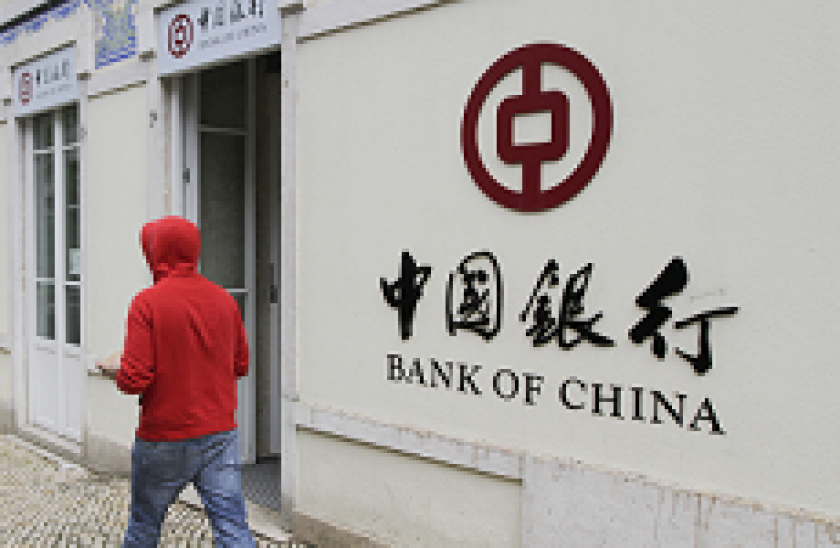Bank of China’s branch in Malaysia has been appointed as the RMB clearing bank for the Labuan International Business and Financial Centre, a territory within Malaysia. The Labuan Financial Services Authority (FSA) made the appointment at a ceremony on August 16 .
Dania l Mah Abdullah, director general of the Labuan FSA, noted at the ceremony that Malaysia’s renminbi qualified foreign institutional investor (RQFII) quotas remain largely unused, and said the establishment of a RMB clearing bank can change that.
“This itself presents an opportunity for Labuan players to make use of the quota and access the Chinese market to invest in RMB-denominated instruments,” said the official.
Malaysia has been allocated Rmb50bn ($7.28bn) RQFII quotas, but CIMB Principal Asset Management Berhad is the only participant from the country in the inbound investment programme, according to GlobalRMB data. The company has Rmb1.6bn of RQFII quotas.
The China Securities Regulatory Commission (CSRC) has slammed Dagong Global Credit Rating, one of the largest domestic credit rating agencies, for charging corporations expensive fees for consulting services while rating their bonds, according to an August 17 statement by the regulator.
The CSRC, which regulates exchange-listed bonds, also criticised the agency for its chaotic internal management, appointing unqualified executives on the rating committees, and missing data in its rating models. As a result, the watchdog has banned the agency from rating bonds for one year .
Th e National Association of Financial Market Institutional Investors (Nafmii), which oversees non-financial bonds in the interbank market, also barred Dagong from the market for a year for the same reason earlier on Friday, GlobalRMB reported at the time .
Th e CSRC said it will come up with more severe punishment for rating agencies that breach its rules, reiterating that rating agencies should maintain their independence, and build firewalls to separate credit rating from other businesses, in order to prevent conflict of interests.
The CSRC added that it will work with the People’s Bank of China to promote connectivity between the interbank and exchange bond marks, strengthen their co-operation over regulating the markets, and ensure that the rights of investors and the public are protected.
The PBoC has stopped commercial banks in the interbank market from depositing or lending renminbi in the offshore market via FTZ schemes, according to media reports. The move, which is aimed at tightening offshore renminbi (CNH) liquidity and driving up the cost of shorting the currency, was announced by the Shanghai branch of the PBoC and came into effect last Thursday, said an August 16 media report and a Chinese media report on the following day.
The onshore renminbi (CNY) and the CNH were trading at 6.8477 and 6.8371 against the dollar at noon, according to Bloomberg data. The two have lost 5.5% and 4.9% in value since the start of the year. The daily CNY fixing by the PBoC was set at 6.8718 this morning, stronger by 176bps.
Issuers sold Rmb3.5tr of bonds in the onshore primary market in July, according to figures published by the PBoC last week.
Negotiable certificates of deposit (NCD) made up Rmb1.2tr of that amount. Local governments issued Rmb757bn of bonds, whereas the central government closed Rmb337.3bn of new issuance. Volumes for financial bonds, corporate bonds and asset-backed securities stood at Rmb424.6bn, Rmb586.1bn and Rmb116.5bn, respectively .
Ban k of China has completed the first cross-border FX transaction via blockchain in China, the bank said in an August 17 statement. The dollar-denominated trade involved two parties, one from Xiongan in the Hebei province and another in Seoul, South Korea. BOC said the technology will allow clients to see the status of the transaction in real time, which will enhance their ability to manage liquidity.
China Foreign Exchange Trade System (Cfets) has introduced a new indicator to better reflect money supply in the dollar lending market in the mainland, Cfets said in its latest monthly newsletter, published last Friday. The new indicator launched on July 2.
Working with NEX, a trading technology provider, Cfets publishes its Interbank USD Lending Market Sentiment Indicator at 9am on every trading day. The indicator has a value of between 0 and 100. The higher the value, the more money supply there is.
Also in July, Cfets launched the first lending transaction collateralized by foreign currency bonds issued outside China. The move will help develop foreign currency financing instruments in China, and help members of the market better manage their assets and liabilities, by reducing credit risks and the costs of foreign currency financing, Cfets said in the newsletter.
The US and China are drawing closer to imposing 25% on an additional $16bn of imports from each other. The tariffs from both sides will kick in at noon on Thursday. The Chinese Ministry of Commerce (MofCom) said on August 16 that Wang Shouwen, a vice commerce minister, will lead the talks with a US delegation headed by David Malpass, undersecretary for international affairs at the US Treasury.
MofCom did not specify the date but an August 16 media report claimed the talks will take place on August 22 and August 23, citing officials from both countries.
Our most recent stories:

